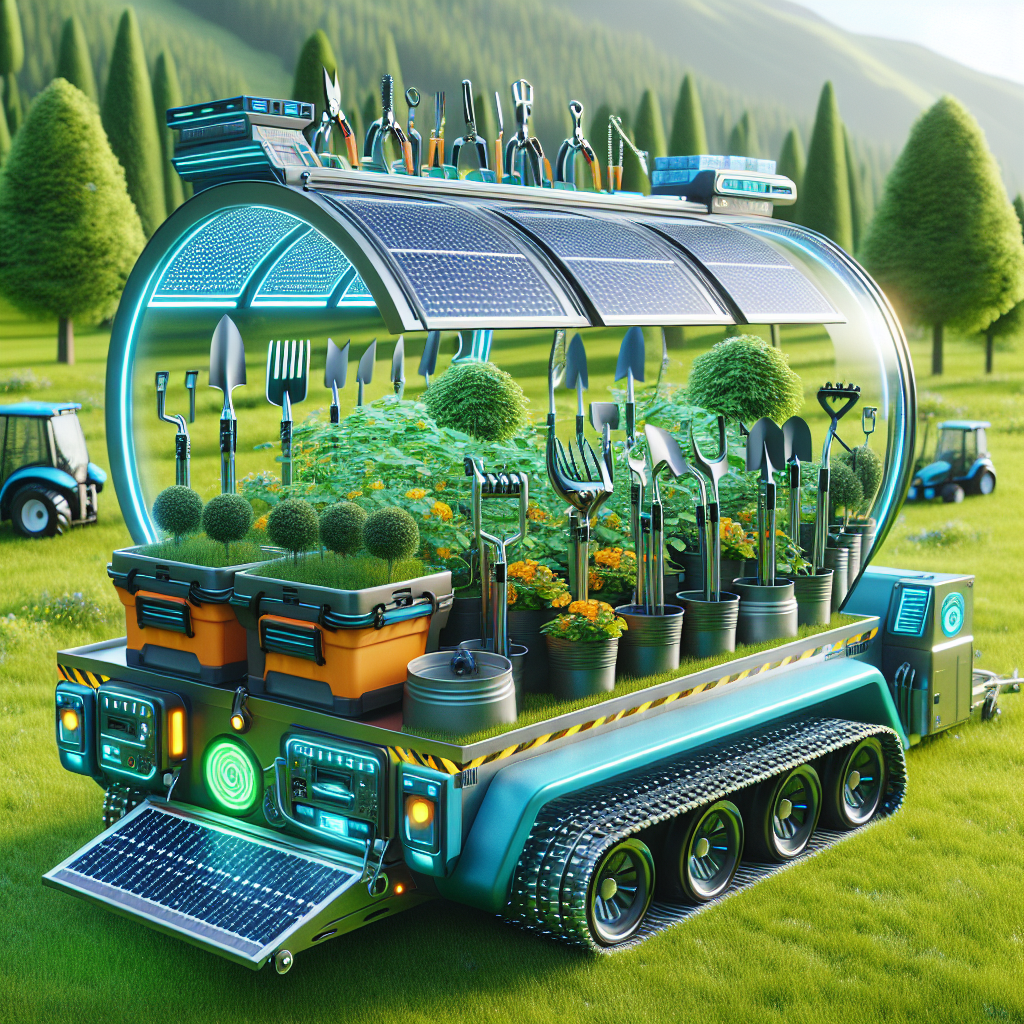Overview of Landscaping Trailers
Landscaping trailers play a crucial role in the operations of landscaping businesses, providing a means to transport equipment, tools, and materials efficiently. Choosing the right trailer can significantly impact a company's productivity and ability to tackle various projects. According to industry experts, selecting the appropriate type of trailer is essential for optimizing efficiency and ensuring that the equipment is well-protected during transit.
Importance of Choosing the Right Trailer for Landscaping Businesses
Paul Johnson, a landscaping equipment specialist, emphasizes the importance of selecting the right trailer: 'The trailer you choose can make a significant difference in how efficiently you can move your equipment from one job site to another. It's crucial to consider factors such as size, capacity, and features to meet your specific needs and enhance overall productivity.'
Types of Landscaping Trailers
Enclosed Trailers
Enclosed trailers provide protection from the elements, ensuring that equipment and supplies remain secure and sheltered during transport. These trailers are ideal for securing valuable tools and materials, especially in inclement weather conditions.
Open Trailers
Open trailers, on the other hand, offer easy access to equipment and materials, making them suitable for quick loading and unloading. While they may not provide the same level of protection as enclosed trailers, they are often preferred for their accessibility and versatility.
Dump Trailers
Dump trailers are specifically designed for hauling and dumping loose materials such as soil, mulch, and gravel. These trailers feature hydraulic lifts that allow for easy unloading, making them ideal for large landscaping projects that involve heavy materials.
Key Features to Consider
When selecting a landscaping trailer, several key features should be taken into account to ensure optimal functionality and efficiency:
Trailer Size and Capacity
It's essential to choose a trailer size that can accommodate your equipment and materials effectively. Additionally, considering the weight capacity of the trailer is crucial to prevent overloading and ensure safe transport.
Ramp or Gate Options
Ramps or gates provide easy access for loading and unloading equipment. Depending on the type of equipment you transport, selecting the appropriate ramp or gate design can streamline the process and improve efficiency.
Tie-Down Points
Secure tie-down points are essential for safely securing equipment and materials during transit. Having multiple tie-down options allows for flexibility in securing various items and preventing shifting or damage while on the road.
Weather Protection
For landscaping businesses operating in diverse weather conditions, weather protection features such as covers or enclosures can safeguard equipment and supplies from rain, snow, or intense sunlight. Ensuring that your trailer provides adequate protection can prolong the lifespan of your tools and materials.
Case Studies
How Company X Increased Efficiency with Enclosed Trailers
Company X, a landscaping business specializing in residential projects, invested in enclosed trailers to safeguard their equipment and tools. The enclosed trailers not only protected their valuable assets from theft and weather damage but also improved efficiency by reducing the time needed to load and unload equipment at job sites.
The Benefits of Dump Trailers for Large Landscaping Projects
A landscaping company tackling large-scale projects opted for dump trailers to streamline the transport of bulk materials. The hydraulic lifts of the dump trailers allowed for quick and effortless unloading of soil, rocks, and mulch, significantly enhancing productivity and reducing manual labor.
Industry Insights
Expert Opinions on Trailer Selection
Sarah Miller, a landscaping industry consultant, advises, 'When selecting a landscaping trailer, it's important to assess your specific needs and preferences. Consider factors such as the type of projects you handle, the terrain you work on, and the equipment you use to determine the most suitable trailer for your business.'
Common Mistakes to Avoid When Choosing a Landscaping Trailer
Avoiding common mistakes such as underestimating trailer size, neglecting weather protection features, or overlooking tie-down options can prevent inefficiencies and potential damage to equipment. Conducting thorough research and consulting with industry experts can help avoid these pitfalls.
Conclusion
In conclusion, choosing the right landscaping trailer is a critical decision that can impact the overall efficiency and success of a landscaping business. Considering factors such as trailer type, size, features, and weather protection is essential for optimizing operations and ensuring the safety of equipment and materials. By investing in the right trailer, businesses can improve productivity, streamline processes, and enhance overall performance.
Call to Action
Landscaping businesses looking to enhance their efficiency and productivity through optimized trailer selection are encouraged to consult with landscaping trailer specialists for custom solutions tailored to their specific needs. Furthermore, further research on trailers designed for particular landscaping requirements can provide valuable insights into maximizing operational effectiveness and achieving business success.
Topics




